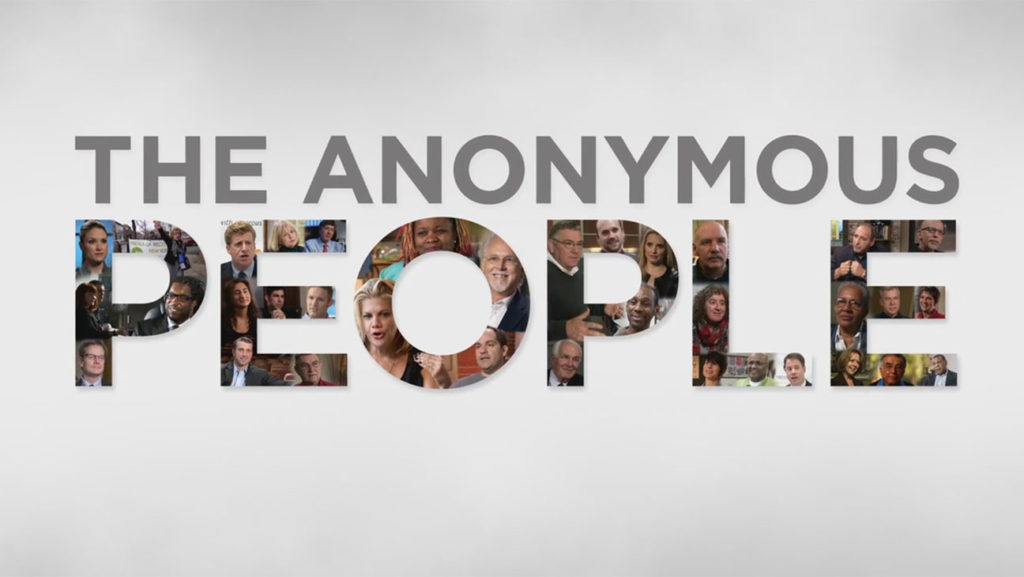
Over 23 million Americans are living in long-term recovery from addiction. How many (or how few) of us know this, is the core of the thought-provoking 2013 advocacy documentary, The Anonymous People.
We all know about Alcoholics Anonymous, where anonymity makes it possible for alcoholics to work on their recovery without stigma. Anonymity is an integral pillar of AA, but some in AA interpret this to preclude publicizing their own recoveries. The Anonymous People challenges that orthodoxy.
The anonymity of those in long-term recovery also keeps the manifestations of recovery invisible to the general public, including the addicts who need it and the policy makers who need to know about it.
The carnage of celebrity addiction, as with Lindsay Lohan and Charlie Sheen, is high profile fodder for the popular media. But comparatively few of us know the stories of Samuel L. Jackson and Russell Brand, who are open about their own long term recovery.
The Anonymous People is about the open recovery movement (or public recovery movement). We hear from John Shinholser, President of The McShin Foundation, a leader in the movement, and others in long term recovery like actress Kristen Johnson of Mom. They advocate that folks come out of anonymity to say, “I am a person in long term recovery, and for me that means that I have been sober for X years.”
After all, who needs a role model more than someone struggling with addiction?
There is a strong parallel to the AIDS activists in the 1980s who defeated the stigma of AIDS by shedding the secrecy.
I saw The Anonymous People at a special screening, in an audience with over 90% people in recovery, and they loved it; (I am what people in recovery call a “Normie”). The Anonymous People will also resonate with anyone also for anyone interested in public policy issues like treatment and incarceration.
The Anonymous People can be streamed from Amazon, AppleTV, Vudu and YouTube.
